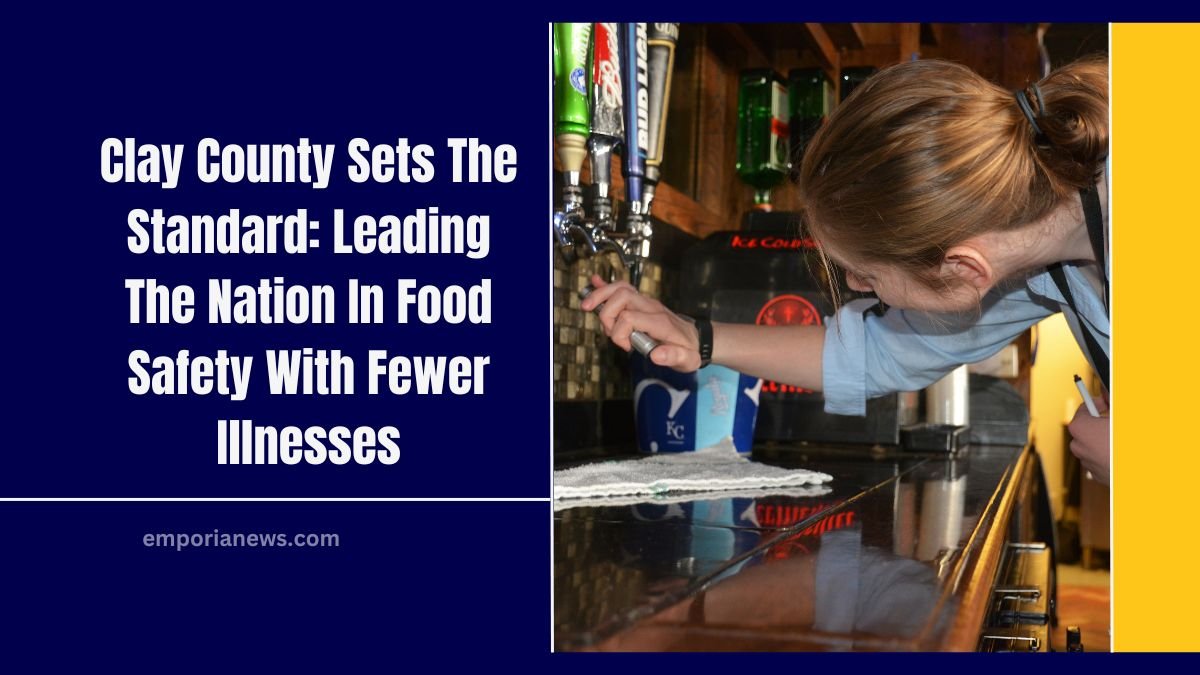Clay County, Missouri, has recently distinguished itself as a national leader in food safety standards. The Clay County Public Health Center (CCPHC) is among only nine health departments nationwide to receive the Food and Drug Administration’s (FDA) Voluntary National Retail Food Regulatory Program Standards certification.
This prestigious recognition underscores the county’s commitment to ensuring the highest levels of food safety for its residents.
Achieving FDA Certification
The FDA’s certification process is rigorous, evaluating health departments on multiple criteria to ensure comprehensive food safety practices.
For CCPHC, this achievement reflects a decade-long dedication to enhancing their environmental health program. Key areas assessed include:
- Comprehensive Training Programs: Ensuring that all food safety inspectors and related personnel are thoroughly trained to identify and mitigate potential hazards.
- Consistency with National Inspection Criteria: Aligning local inspection protocols with national standards to maintain uniformity and reliability.
- Community Relations: Engaging with the public and food establishments to promote awareness and education about food safety practices.
- Emergency Response: Developing and implementing effective strategies to address foodborne illness outbreaks and other food-related emergencies promptly.
Leah Ferris, the program manager for environmental health at CCPHC, emphasized the significance of this accomplishment, noting that it highlights the team’s role as educators rather than mere regulators.
Their primary goal is to assist food establishments in adhering to safety standards, ensuring that all residents have access to safe food.
Impact on Foodborne Illness Rates
One of the most tangible benefits of CCPHC’s enhanced food safety measures is the noticeable decline in foodborne illness cases within the county.
By focusing on proactive inspections and continuous education, the county has effectively reduced violations that could lead to such illnesses. Ferris pointed out that common violations often pertain to:
- Improper Cold Storage: Ensuring that perishable items are stored at appropriate temperatures to prevent bacterial growth.
- Lack of Proper Food Handler Certifications: Mandating that all individuals involved in food preparation and service obtain valid certifications.
- Inadequate Date Marking: Clearly labeling food items with their preparation and expiration dates to ensure freshness.
- Use of Incorrect Cleaning Chemicals: Ensuring that only approved sanitizers are used to clean surfaces that come into contact with food.
- Unclean Surfaces and Utensils: Maintaining rigorous cleanliness standards to prevent cross-contamination.
Addressing these violations has been pivotal in decreasing the incidence of foodborne diseases, thereby safeguarding public health.
Commitment to Ongoing Excellence
The journey to FDA certification required CCPHC to critically assess and enhance its internal processes. This included balancing workloads among inspectors and ensuring that each establishment received thorough and timely evaluations.
Such internal improvements have not only streamlined operations but have also fortified the county’s defense against potential health hazards.
To maintain this esteemed certification, CCPHC has committed to conducting comprehensive audits every five years.
These evaluations will ensure that the county continues to meet or exceed the FDA’s stringent standards, reflecting an unwavering dedication to public health.
Regional and National Context
While Clay County stands out for its exemplary food safety standards, it’s essential to recognize the broader context. Of the approximately 3,300 environmental health programs across the United States, only 980 are enrolled in the FDA’s Retail Food Program Standards.
This enrollment signifies a commitment to upholding high food safety standards. However, achieving full certification, as CCPHC has, remains a distinguished accomplishment.
In the surrounding regions, several counties and cities, including Jackson, Platte, Cass, and Johnson counties in Missouri, as well as the City of Independence, are actively working towards meeting these standards.
Their efforts highlight a collective regional commitment to enhancing food safety and protecting public health.
Clay County’s recognition by the FDA as a leader in food safety is a testament to the relentless efforts of the CCPHC’s environmental health program.
Through comprehensive training, consistent inspections, and robust community engagement, the county has set a benchmark for others to emulate.
Residents and visitors can dine with confidence, knowing that the highest standards of food safety are diligently upheld.




